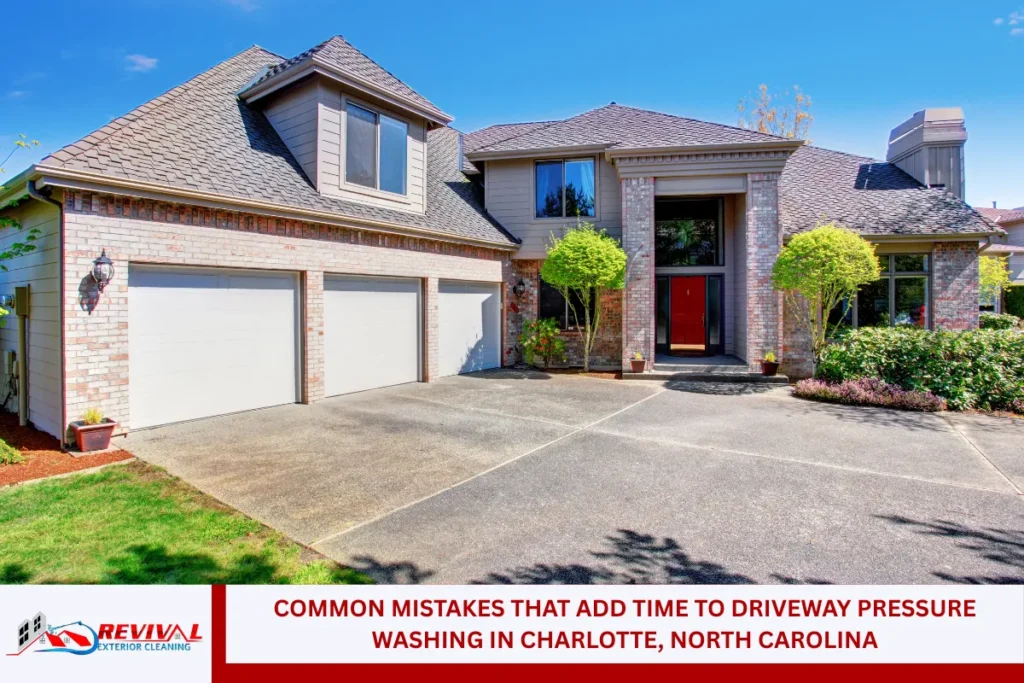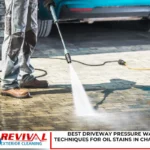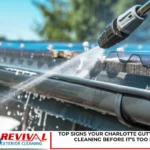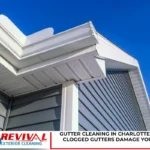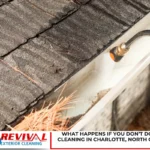Driveway pressure washing is an excellent way to maintain the appearance of your home. Still, many homeowners in Charlotte, North Carolina, make common mistakes that add unnecessary time to the job. From not preparing the driveway properly to using the wrong cleaning solutions, these errors can delay the process and affect the outcome. Understanding the correct technique and the right tools for driveway pressure washing can help you avoid these time-wasting mistakes and achieve a cleaner, well-maintained driveway with minimal effort.
In this article, we will discuss the most common mistakes that can add time to your driveway pressure washing tasks in Charlotte, NC, and provide guidance on how to avoid them. Whether you’re a seasoned DIYer or a first-time homeowner attempting to clean your driveway, knowing what to avoid will save you time and ensure a better result.
Not Preparing the Driveway Properly
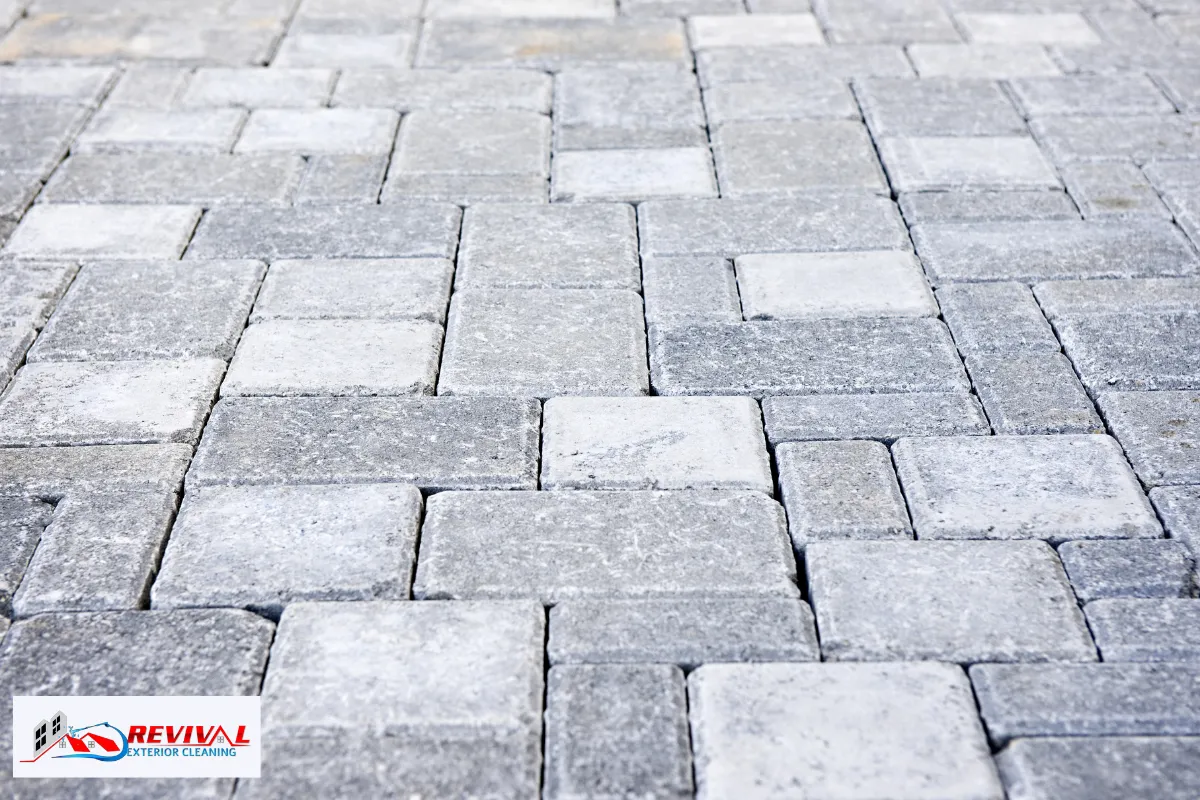
Proper preparation is one of the most important steps in driveway pressure washing. It’s easy to overlook, but taking the time to prepare your driveway can make the cleaning process faster and more effective.
Why Preparation is Crucial
Before starting, you should clear the driveway of any debris, such as leaves, sticks, rocks, or dirt. These materials can clog your pressure washer or obstruct your cleaning process, causing unnecessary delays. Additionally, moving vehicles, outdoor furniture, or other obstacles will allow you to reach all areas of the driveway without interruptions.
How to Properly Prepare
To ensure your driveway is properly prepared for pressure washing, sweep the surface first and use a leaf blower if necessary. This will clear any loose debris and ensure a smoother cleaning process. Make sure there are no items that could block the nozzle or obstruct the path of your pressure washer. By taking this simple step, you’ll avoid unnecessary interruptions during your cleaning session.
Using the Wrong Pressure Washer Nozzle
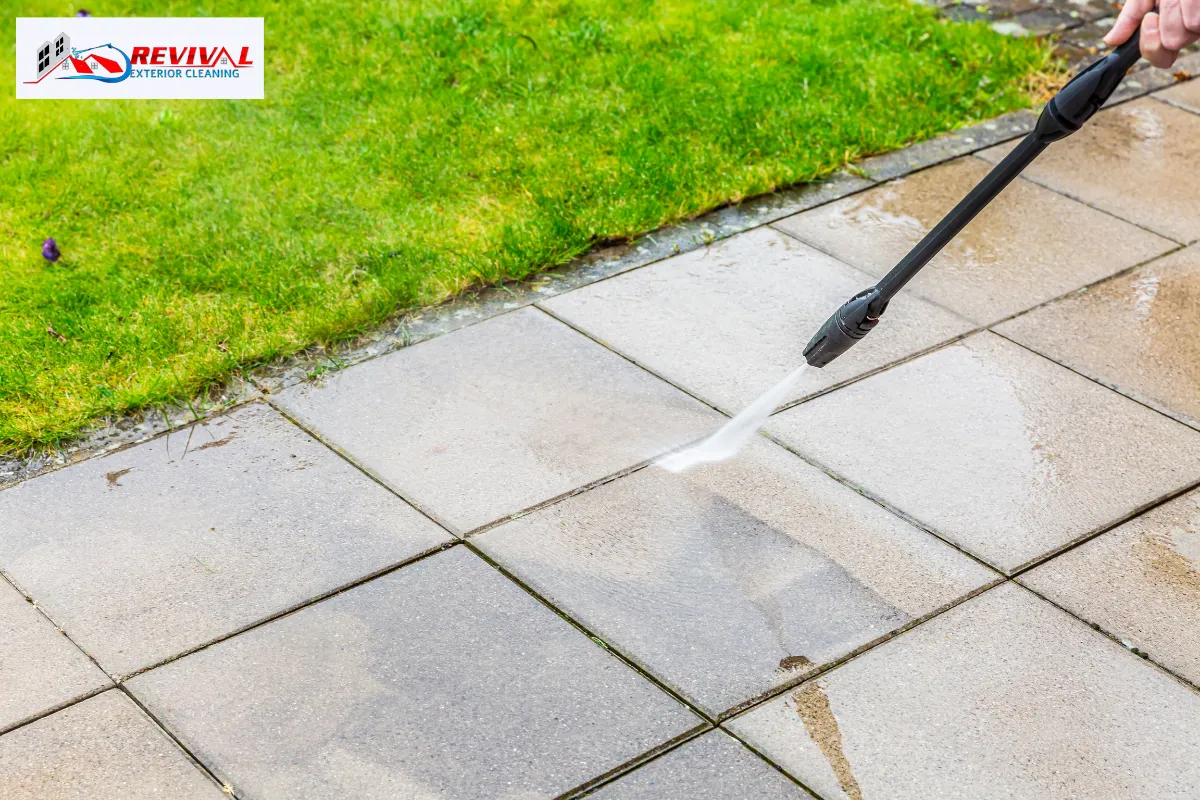
The pressure washer nozzle plays a significant role in achieving a clean driveway. Using the wrong nozzle can result in either ineffective cleaning or damage to your driveway.
Understanding Nozzle Types
Pressure washers come with different types of nozzles, each designed for specific tasks. The most common nozzles are typically color-coded to indicate their spray width and intensity. For instance, a 0-degree nozzle delivers a high-intensity stream for concentrated cleaning, while a 40-degree nozzle provides a broader spray for general cleaning. Selecting the wrong nozzle can mean wasting time re-cleaning areas that were either under-cleaned or over-pressurized.
Why Nozzle Selection Matters
Using a nozzle that is too powerful for your driveway can damage the concrete, leaving behind marks or cracks. On the other hand, using a nozzle that is too weak may not remove stubborn dirt and stains, forcing you to spend more time on the task. Knowing which nozzle to use for different types of debris can significantly speed up your cleaning process.
Not Using the Right Cleaning Solution
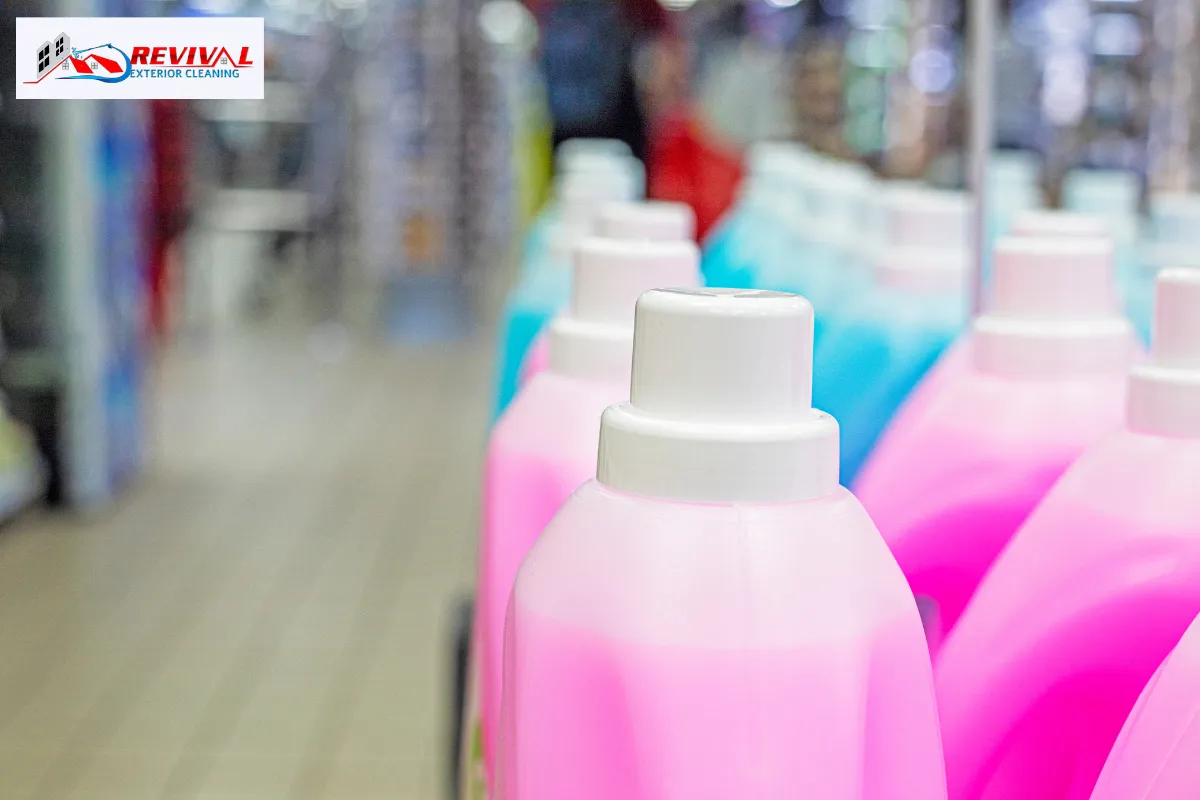
While pressure washing can remove a significant amount of dirt and grime, it may not be enough to tackle tough stains, such as mold, mildew, and oil. That’s why using the right cleaning solution is essential.
Types of Cleaning Solutions
For general cleaning, a simple water rinse might suffice. However, for stubborn stains like oil spots or mildew, you’ll need specialized cleaning agents. For example, a degreaser is often required to lift oil stains, and a mold remover is essential for eliminating mold and mildew. Using a generic or incorrect cleaning solution will either waste your time or fail to address the problem entirely.
How Cleaning Solutions Affect Time
The right cleaning solution will work in tandem with your pressure washer to break down the dirt and stains, making it easier to remove. If you skip this step or use an ineffective solution, you’ll end up spending more time scrubbing and rinsing. This can significantly add to the time required for your pressure washing task, especially in areas affected by mold or oil.
Over-Washing or Under-Washing
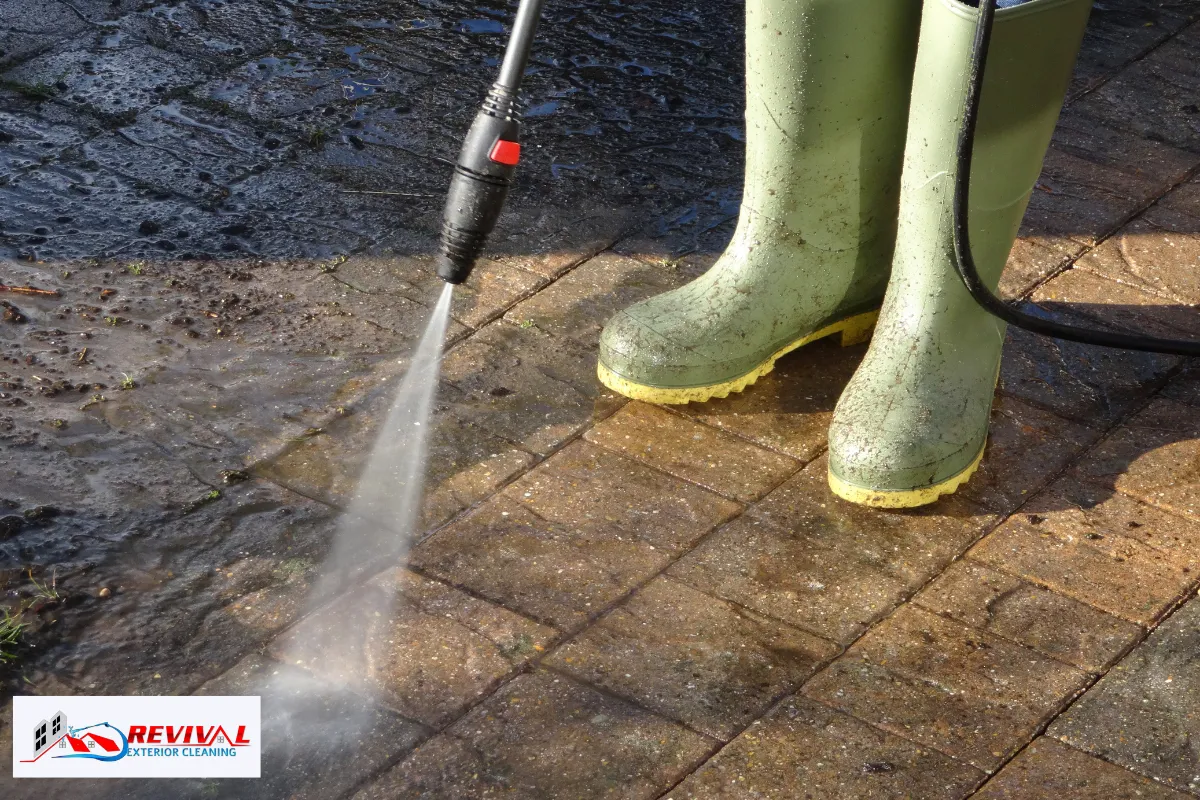
It’s important to strike the right balance when pressure washing your driveway. Both over-washing and under-washing can waste time and effort.
The Problem with Over-Washing
Over-washing happens when you apply more water and detergent than necessary. This leads to prolonged drying times, especially in a humid environment like Charlotte. Excessive water can also cause runoff to pool around your driveway, making the process take even longer.
The Problem with Under-Washing
On the other hand, under-washing refers to applying insufficient pressure or detergent to clean the surface thoroughly. As a result, stains and dirt may remain, requiring you to revisit areas multiple times. Both of these issues waste time, and finding the right balance will help you avoid unnecessary backtracking.
Ignoring the Weather Conditions
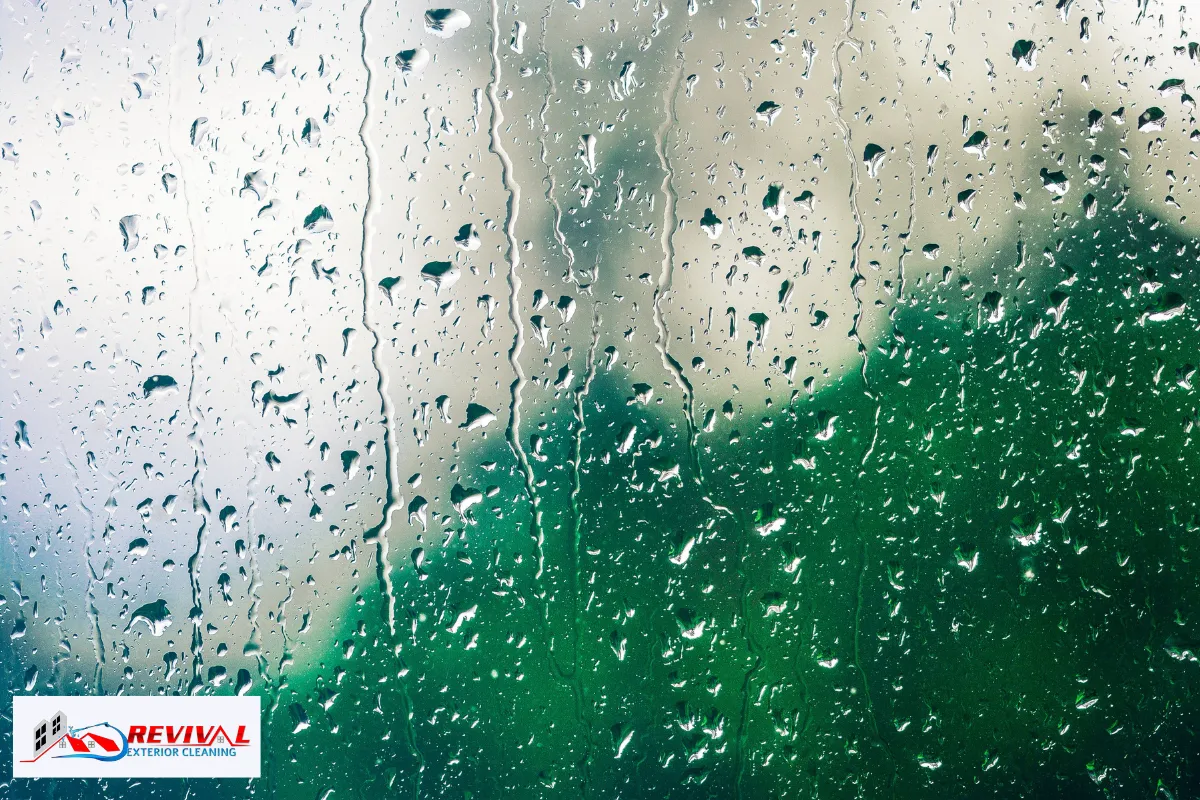
Charlotte, NC, is known for its hot summers and frequent rain. It’s essential to consider the weather before undertaking a pressure washing project.
How Weather Affects Pressure Washing
Pressure washing is best done on dry, sunny days when there’s little chance of rain. Wet conditions can impede your ability to clean thoroughly, while excess moisture can prolong the drying time of your driveway. Additionally, cleaning in freezing temperatures can lead to complications with your pressure washer and potential damage to your driveway.
Best Time to Pressure Wash
To achieve the best results, schedule your pressure washing for a dry, mild day with temperatures above 50°F. This ensures that the cleaning solution has time to work and that the surface dries efficiently. Failing to consider the weather will lead to delays, as you may need to stop the project due to unexpected rain or freezing temperatures.
Failing to Maintain Your Pressure Washer
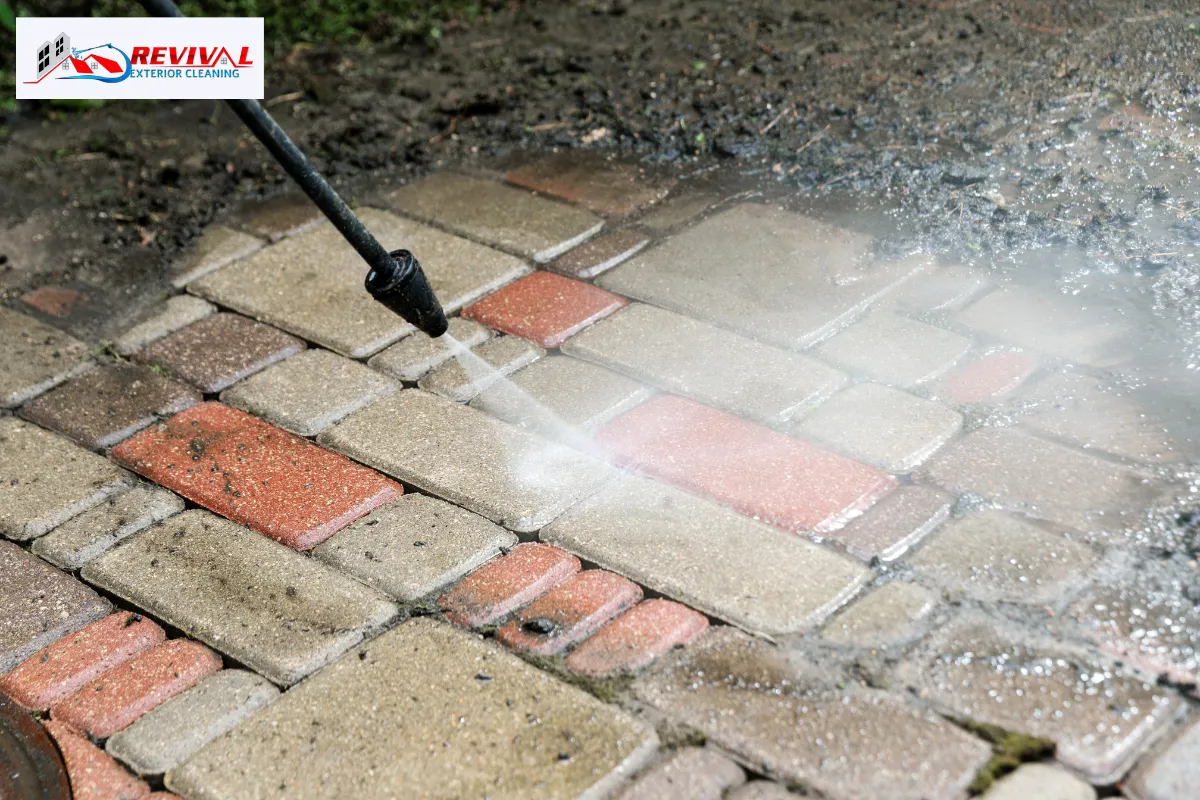
A malfunctioning pressure washer can slow down your work and even add time to your project.
Why Regular Maintenance Matters
Pressure washers require regular maintenance to keep them in good working condition. Ensure that the filters are clean, the nozzle is unclogged, and the machine has the correct pressure settings. Neglecting maintenance can lead to equipment failure, wasting time on repairs, and causing delays.
How to Keep Your Pressure Washer Running Smoothly
Before starting your pressure washing task, check that your pressure washer is in proper working order. Clean the nozzles and filters, and ensure the gas or electric components are fully charged. By keeping your equipment well-maintained, you will avoid time-consuming breakdowns and improve the efficiency of your work.
Incorrect Pressure Washing Technique
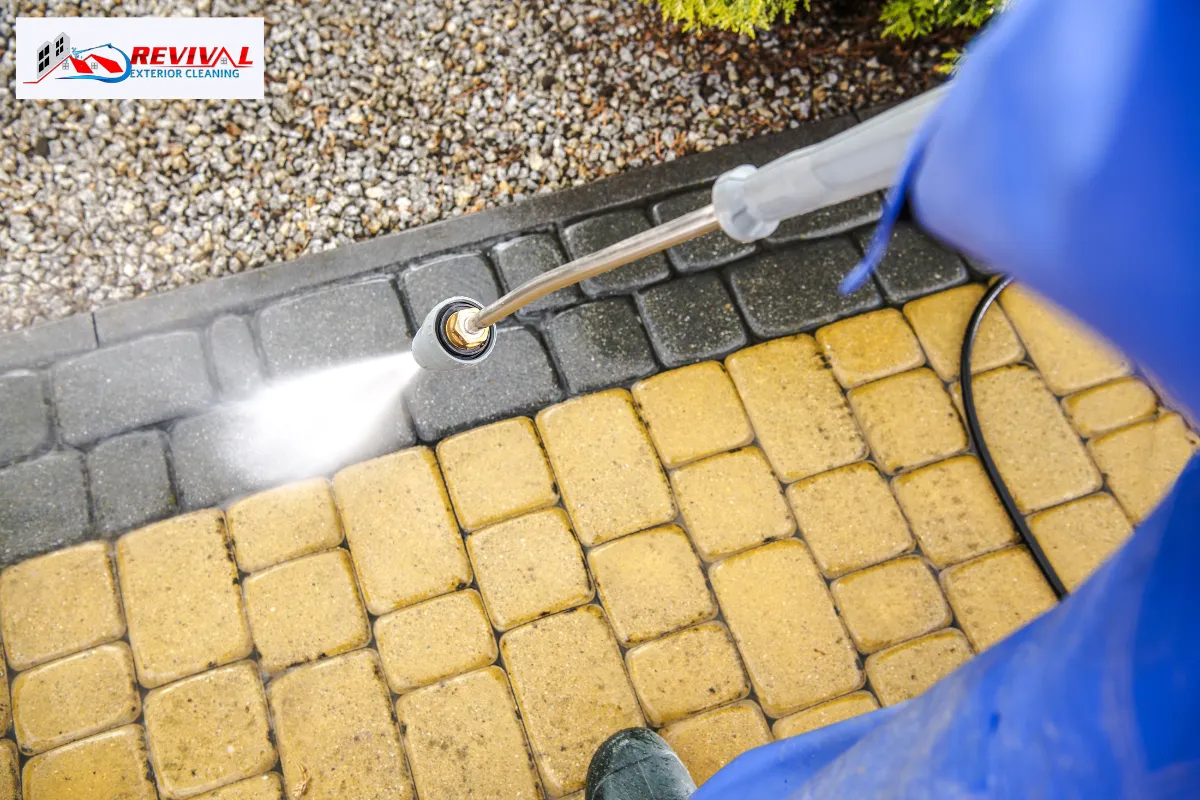
Using the wrong technique can result in uneven cleaning or even surface damage, which will only add more time to your project.
Best Practices for Pressure Washing
When pressure washing, it’s important to maintain a consistent distance from the surface. Keep the nozzle about 6 to 12 inches from the concrete and move in even, sweeping motions. Avoid staying in one spot for too long, as this can lead to streaks or potential damage to the surface.
How Technique Affects Efficiency
By using the right technique, you can cover more ground quickly and effectively. Incorrect pressure or inconsistent movement can leave areas untouched or uneven, forcing you to go back and clean them. A proper technique ensures a faster and more thorough cleaning process.
Not Giving the Driveway Enough Time to Dry
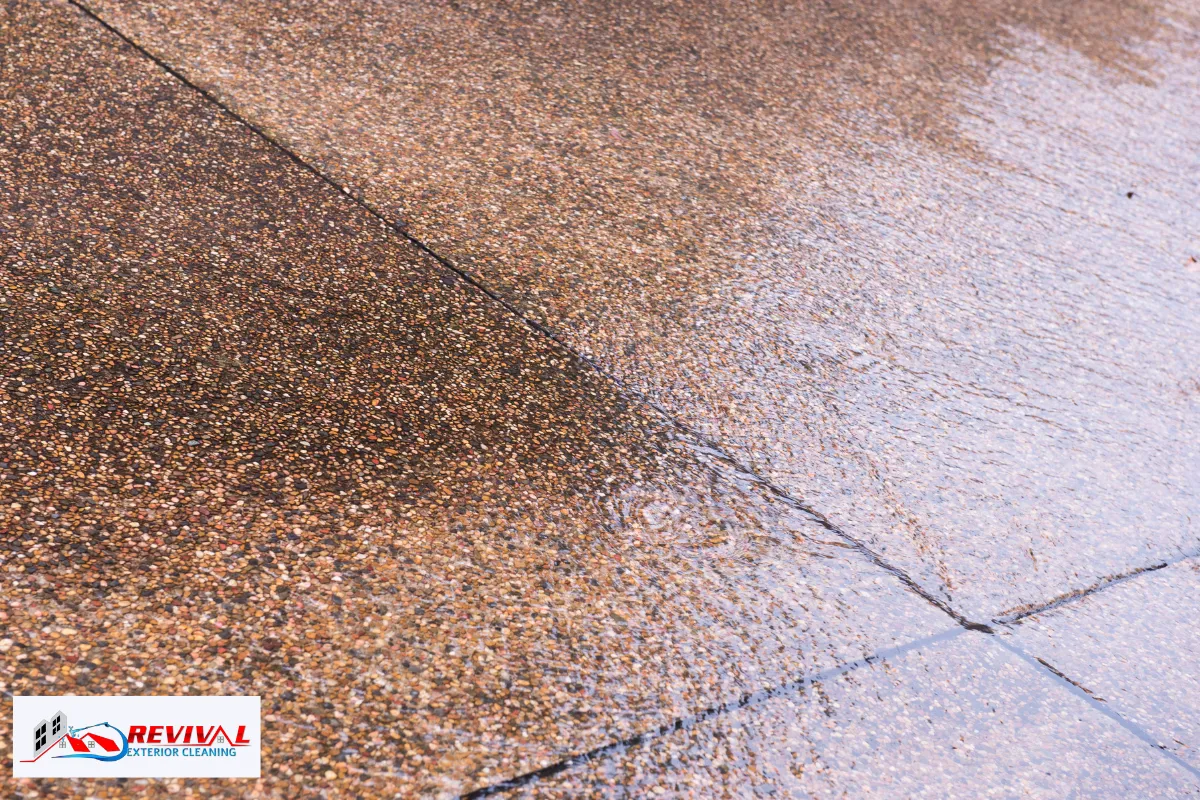
After pressure washing, giving your driveway sufficient time to dry is crucial. Rushing this process can lead to water spots or mold growth.
Why Drying Time Matters
Driveways need time to dry completely, especially in humid environments like Charlotte. If you rush the drying process or don’t give the driveway adequate time to dry, water spots and stains may form. Additionally, moisture trapped in the driveway can encourage the growth of mold or mildew, requiring you to clean it again.
How to Speed Up Drying
To speed up the drying process, avoid washing on extremely humid days and ensure that your driveway is exposed to direct sunlight. You can also use fans or blowers to help speed up evaporation. Ensuring that the driveway dries properly will prevent future cleaning tasks and save you time in the long run.
The Importance of Proper Techniques in Driveway Pressure Washing
In conclusion, avoiding the common mistakes mentioned above is key to ensuring that your driveway pressure washing is completed quickly and effectively. By preparing your driveway properly, using the correct nozzle, and selecting the right cleaning solutions, you can avoid wasting time and effort. Additionally, paying attention to weather conditions and maintaining your pressure washer will help keep the process smooth and efficient.
Proper pressure washing requires a balanced approach, from choosing the right equipment to following the correct technique. With the right knowledge and preparation, you can keep your driveway looking fresh while avoiding costly time delays.
Charlotte Driveway Pressure Washing – Revival Exterior Cleaning
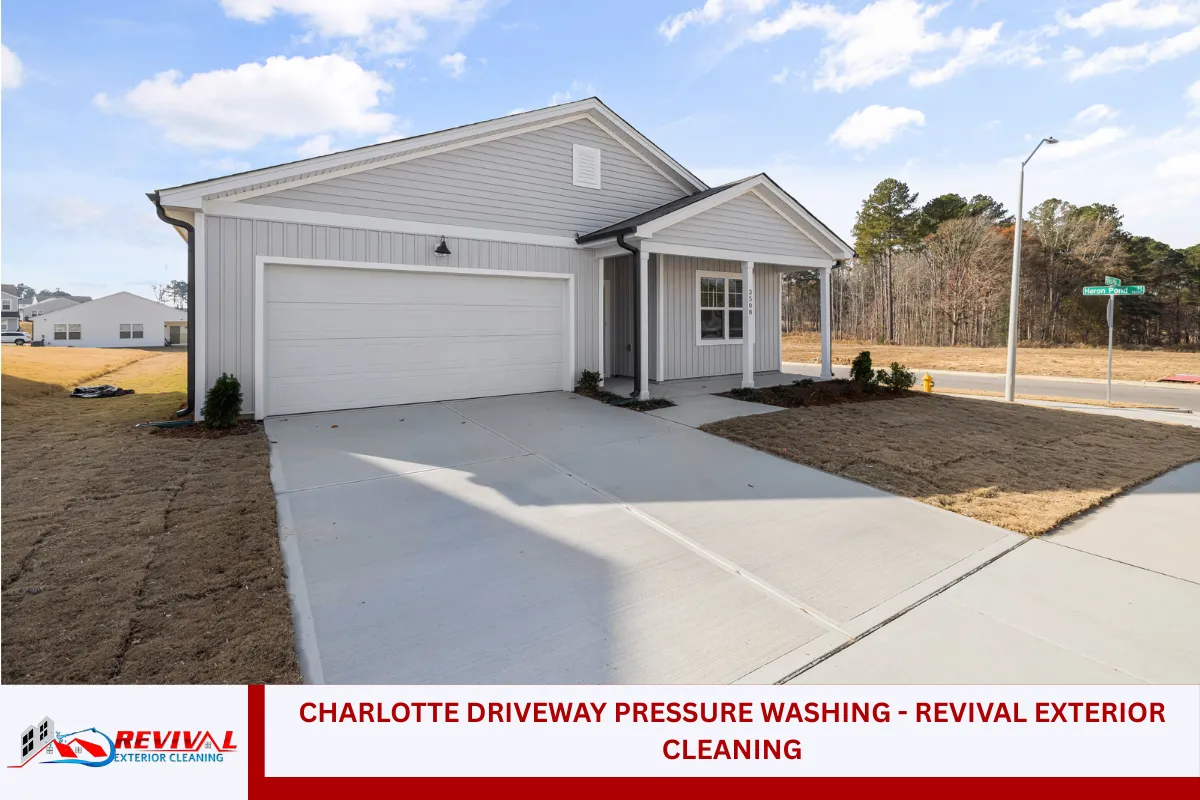
For homeowners and businesses in Charlotte, NC, looking for professional and reliable driveway pressure washing services, Revival Exterior Cleaning provides high-quality solutions tailored to meet all your needs! Our family-owned company specializes in residential and commercial pressure washing, making sure your driveway is spotless without the hassle.
Our team offers a range of exterior cleaning services, including gutter cleaning, window washing, and driveway pressure washing. Whether you’re looking to clean your driveway, remove mold and mildew, or give your property a fresh look, we’re here to help. Contact us at (980) 264-2359 for expert cleaning services that guarantee satisfaction.
FAQ: Common Mistakes in Driveway Pressure Washing
What are the most common mistakes people make when pressure washing a driveway?
Pressure washing a driveway can be a straightforward process, but several common mistakes can slow it down or lead to poor results. One common mistake is using the wrong pressure washer nozzle attachment. Nozzle attachments come in different sizes and spray angles, and using a too-powerful nozzle can damage the driveway surface. Additionally, many homeowners fail to clean the pressure washer’s detergent tank or nozzle, leading to clogs or ineffective cleaning. Failing to use protective gear, such as safety glasses or gloves, can also pose significant safety risks. Another mistake is not sealing the surface after washing, allowing mold spores or oil stains to resettle. It’s essential to follow a methodical approach to ensure that high-pressure water doesn’t create further damage, especially when tackling stubborn stains like tire marks or skid marks.
How do I remove oil stains from my driveway?
Oil stains are one of the most stubborn stains that can appear on a driveway, but they are not impossible to remove. To begin, you can use a pressure washer with a surface cleaner attachment, which distributes high-pressure water evenly over the stain. For best results, pre-treat the oil stains with a degreaser or an environmentally friendly option before pressure washing. A detergent tank can hold the cleaning solution for continuous application while washing. It’s essential to use hot water if possible, as it helps to break down grease more efficiently. Once the stain is cleaned, use a scrub brush for any remaining residue. If the oil stains persist, applying a commercial driveway cleaner specifically designed for oil stains might be necessary. Be sure to protect surrounding areas from detergent runoff and avoid leaving harsh chemicals exposed on your driveway surface.
Why should I use safety gear while pressure washing?
When pressure washing a driveway, using safety gear is essential to protect yourself from potential hazards. The high-pressure water stream produced by a pressure washer can be hazardous if misused, potentially causing injuries such as cuts or bruises, especially when handling powerful equipment like a power washer. The first piece of safety gear you should wear is safety glasses to protect your eyes from flying debris and water. Wearing heavy-duty gloves will also prevent hand injuries from sharp objects on the driveway or the pressure washer itself. Additionally, if you’re using hot water to remove stubborn stains, it’s important to wear protective clothing to prevent burns. When pressure washing a driveway, wear closed-toe shoes to protect your feet from objects that the high-pressure stream may displace. Always check the pressure gauge and ensure that the machine is in good working order before use.
How do I avoid damaging my driveway while pressure washing?
Avoiding damage while pressure washing your driveway is crucial to maintaining its integrity and longevity. Start by adjusting the pressure settings on your power washer to ensure it’s not too high for the driveway surface. Using the incorrect nozzle attachment can lead to excessive exposure to high-pressure water, which can result in surface erosion. A surface cleaner attachment can help evenly distribute the water pressure, reducing the risk of surface damage. Always maintain a safe distance between the nozzle and the driveway surface. Keeping the nozzle 6 to 12 inches away will allow the water to clean effectively without damaging the material. For stubborn stains, such as tire marks or oil stains, use a spot treatment approach rather than spraying the entire driveway with high-pressure water. If your driveway has any cracks or vulnerabilities, be sure to seal the surface afterward to prevent further damage.
What should I do after pressure washing my driveway?
After pressure washing your driveway, proper follow-up steps are critical to ensure a long-lasting, clean surface. The first thing you should do is allow the driveway to fully dry. This may take a few hours, depending on the weather conditions and the amount of water used. After drying, inspect the surface for any remaining stubborn stains or areas that need additional cleaning. If you notice any mold spores or missed spots, you can use a soft wash method to treat those areas. If necessary, apply a driveway sealer to protect the surface from dirt, stains, and weather-related damage. Sealing the surface prevents future buildup and makes subsequent cleaning easier. Using sealing products that are compatible with your driveway’s material will ensure longevity. Don’t forget to clean your pressure washer thoroughly, especially the detergent tank and nozzle attachments, so it’s ready for the next use.
How does using a pressure washer extension hose help during the job?
A pressure washer extension hose can significantly improve your ability to clean large areas efficiently. By extending your reach, you won’t need to constantly reposition your pressure washer, which can save time and energy, especially on larger driveways. An extension hose also allows you to reach areas that are difficult to access without moving the pressure washer, such as the edges of your driveway or around corners. This added reach can reduce the number of times you need to reposition, allowing you to focus on pressure washing the surface more thoroughly. Just ensure that the extension hose is rated for your specific power washer model and pressure requirements. The ability to cover a wider area with ease can be especially helpful when dealing with stubborn stains, such as skid marks, oil stains, or mold growth, along the edges of the driveway.
Is soft washing effective for cleaning driveways?
Soft washing is a cleaning technique that utilizes low-pressure water, combined with specialized cleaning detergents, to gently clean surfaces. It is effective for delicate surfaces that could be damaged by high-pressure water, such as some types of asphalt or brick driveways. Soft wash equipment works by applying a cleaning solution that breaks down dirt, mold spores, and grime, followed by a low-pressure rinse. While soft washing might not be suitable for removing tough stains like oil spots or tire marks, it’s an ideal method for cleaning overall surface grime and preventing damage. This method is particularly useful for homeowners seeking an environmentally friendly option that utilizes less water and minimizes the risk of damaging the driveway surface. In Charlotte’s humid climate, soft washing can also help prevent mold and mildew buildup without resorting to harsh chemicals.
Read more: Best Season for Driveway Pressure Washing in Charlotte, North Carolina


